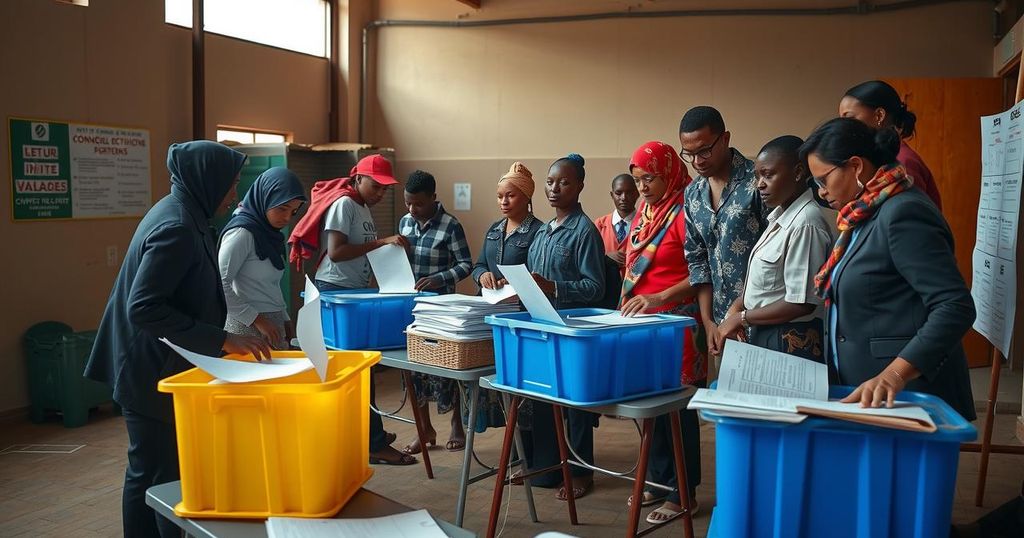Namibia’s Election Voting Extended Amid Allegations of Mismanagement and Fraud
Namibia has extended election voting due to ballot shortages, facing opposition claims of fraud. While the electoral commission cites logistical issues, skepticism remains high among voters. This election also has significance as vice president Netumbo Nandi-Ndaitwah could become the country’s first female leader amidst rising public discontent.
Namibia has announced an extension of the voting period for its presidential and parliamentary elections due to technical difficulties related to ballot paper shortages. Originally set to conclude on Wednesday, the polling stations will now remain open until Saturday evening. This decision has been met with opposition complaints, particularly from the Independent Patriots for Change party, which alleges that the extension is a violation of electoral laws and potentially indicative of fraud.
Electoral Commission chairperson Elsie Nghikembua stated that logistical challenges had hindered many voters from casting their ballots. Despite assurances from officials regarding the arrival of ballot papers, there remains significant skepticism among the electorate. Reports have indicated chaotic scenes at various polling stations, particularly in rural areas.
This electoral upheaval takes place against a backdrop of political tension within the region, exemplified by ongoing unrest in Mozambique following disputed election results favoring the ruling Frelimo party. The current Namibia elections are notably crucial, as they involve the potential elevation of vice president Netumbo Nandi-Ndaitwah to the presidency, which would mark a historic milestone as she would be the country’s first female leader. However, Nandi-Ndaitwah faces substantial opposition from a disenchanted youth demographic in a nation grappling with stark inequalities despite its rich mineral resources.
Namibia, a nation rich in minerals like gold and uranium, has maintained a relatively stable democratic system despite its complicated history as a former German colony and subsequent apartheid rule under South Africa. Since gaining independence in 1990, the South West Africa People’s Organization (SWAPO) has been the dominant political entity. However, recent trends indicate escalating public discontent driven by economic challenges, particularly among younger citizens, affecting the party’s long-standing grip on power. The decision to extend voting periods and allegations of electoral mismanagement raises questions about the integrity of Namibia’s electoral process and the general sentiment towards the ruling party.
The extension of the voting period in Namibia due to technical issues has prompted serious concerns regarding electoral integrity, with the opposition alleging unlawful practices potentially designed to influence the election outcome. As millions await to exercise their democratic rights amidst uncertainty, the consequences of these developments could reshape the political landscape in Namibia. The response to economic adversity and calls for leadership change within the electorate will be critical in determining the future direction of the nation.
Original Source: apnews.com




Post Comment